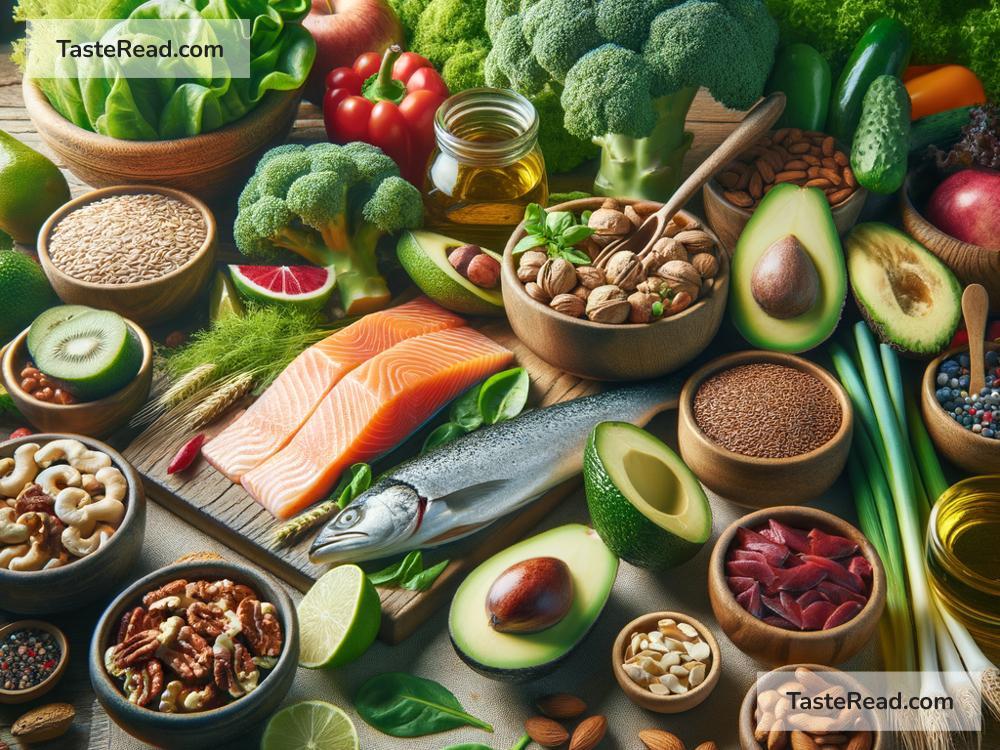Foods for Reducing Cardiovascular Strain: Eat Your Way to a Healthy Heart
Cardiovascular health is essential for living a long, active, and happy life. Your heart works tirelessly 24/7 to pump blood, deliver nutrients, and keep your body functioning. But when poor diet and lifestyle choices add strain to your heart, it can increase your risk of heart disease, high blood pressure, and other serious conditions.
The good news? You can help reduce cardiovascular strain simply by choosing the right foods. A heart-friendly diet is one of the best ways to protect your health. Below, we’ll explore some simple foods that can make a big difference for your heart—tasty, accessible options that don’t require fancy recipes or expensive shopping trips.
1. Leafy Green Vegetables
Think spinach, kale, collard greens, and Swiss chard. Leafy greens are packed with nutrients like vitamins, minerals, and antioxidants. One key nutrient they provide is vitamin K, which helps improve blood vessel health and supports proper circulation. They’re also high in dietary nitrates, compounds that promote healthy blood pressure levels by relaxing blood vessels.
Try incorporating leafy greens into salads, soups, stir-fries, or smoothies. The possibilities are endless—and delicious!
2. Fatty Fish
Fatty fish like salmon, mackerel, sardines, and tuna are among the best sources of omega-3 fatty acids, which are renowned for their heart-protective benefits. Omega-3s can lower inflammation, reduce triglycerides (a type of fat in your blood), and help regulate heartbeat. This makes fatty fish a powerful ally for anyone concerned about cardiovascular strain.
Aim to eat fatty fish at least twice a week. Grilled, baked, or broiled fish are all great options—just avoid heavily fried versions to maximize the health benefits.
3. Whole Grains
Whole grains, such as oatmeal, brown rice, quinoa, and whole-wheat bread, are excellent sources of fiber. Fiber plays a key role in lowering cholesterol levels, particularly LDL cholesterol (often called the “bad” cholesterol). Lower cholesterol means less strain on your arteries and heart.
When buying breads, cereals, or pastas, look for labels that say “100% whole grain” or “whole wheat” to get the most benefits for your cardiovascular health.
4. Berries
Strawberries, blueberries, raspberries, and blackberries don’t just taste amazing—they’re also heart-healthy superfoods. Berries are loaded with antioxidants like polyphenols, which fight inflammation and protect blood vessels from damage. Their natural sweetness is a healthy alternative to sugary desserts, which can harm your heart by increasing your risk of diabetes and obesity.
Snack on berries, add them to your yogurt or oatmeal, or blend them into smoothies to enjoy their powerful heart benefits.
5. Nuts and Seeds
Nuts such as almonds, walnuts, and pistachios, and seeds like chia, flax, and sunflower seeds, are rich in healthy fats, fiber, and plant-based proteins. Walnuts, in particular, are high in omega-3s, while almonds are a great source of vitamin E, which supports heart cell health.
Whether eaten as a snack, sprinkled on salads, or added to baked goods, nuts and seeds are versatile and satisfying options for a cardiovascular-friendly diet. Just remember to eat them in moderation—they’re calorie-dense, so a small handful is all you need.
6. Olive Oil
Olive oil, especially extra-virgin olive oil, is a staple of heart-healthy diets like the Mediterranean diet. It’s rich in monounsaturated fats, which can help reduce bad cholesterol levels while boosting good cholesterol. Olive oil also contains antioxidants that combat inflammation and benefit your heart.
Use olive oil for cooking, drizzle it on veggies, or mix it into salad dressings. It’s an easy way to add a healthy twist to your meals.
7. Avocados
Avocados are another source of healthy monounsaturated fats that support heart health. They’re also rich in potassium, a mineral that helps regulate blood pressure. Incorporating avocados into your diet can reduce your risk of cardiovascular strain.
Enjoy avocados on toast, in guacamole, or sliced into a salad—there’s no shortage of ways to make them taste great.
8. Garlic
Garlic isn’t just a flavorful addition to your meals—it’s also a powerful tool for your heart. Garlic contains a compound called allicin, which has been shown to relax blood vessels, lower blood pressure, and reduce cholesterol levels. Over time, including more garlic in your diet may ease stress on your cardiovascular system.
Use fresh garlic in your cooking whenever possible. It’s inexpensive, easy to use, and packed with nutrients.
9. Dark Chocolate
Yes, you read that right—dark chocolate can be heart-friendly! The key is to choose chocolate with at least 70% cocoa content, as this contains high levels of flavanols, which improve blood flow, lower blood pressure, and reduce inflammation.
Enjoy a small piece of dark chocolate as a guilt-free treat, but remember: moderation is important, as even healthy chocolate contains calories and sugar.
Final Thoughts
These foods aren’t just good for your heart—they’re delicious, affordable, and easy to find at your local grocery store. By adding more of them to your diet, you can reduce cardiovascular strain and improve your overall health. Pair them with regular exercise, adequate sleep, and stress management to give your heart the care it deserves.
Remember, small changes over time can lead to big results. Start with one or two of these heart-friendly options and build from there. Your heart will thank you!


